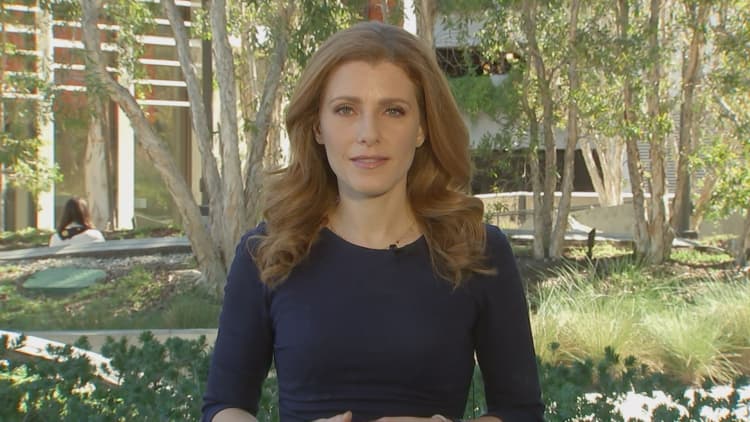
A new app is taking off, and it could pose a big threat to Snapchat's core user base, according to an analyst report by MoffettNathanson, an independent sell-side research firm.
TikTok, owned by China-based company ByteDance, allows users to create and share short-form videos similar to those on Snapchat and Vine, the app that Twitter purchased and ended up shutting down two years ago. TikTok has broad copyright agreements, allowing users to create music videos in which they lip sync along to popular songs.
Snap and Twitter declined to comment to CNBC about TikTok's growth, and its competitive threat.
While Tik Tok first launched in China in 2016, to help expand to the United States, the company purchased a similar app called Musical.ly and consolidated the two. Since relaunching the combined company in August, app tracker Apptopia says its U.S. audience grew by 30 million and its downloads were up 25 percent in the three months after the merger compared with the three months before.
Now TikTok boasts 500 million monthly actives users, compared with Twitter's 326 million, as of the end of its third quarter. While Snap doesn't report monthly metrics, the company announced 186 million daily active users in the third quarter — it's second straight report of sequential declines.
In contrast, TikTok is quickly climbing the download charts. Research firm App Annie says TikTok ranked No. 4 worldwide in downloads across iOS and Google Play in 2018. It was the No. 1 most downloaded app last year globally on iOS.
"Given its focus on teens, we believe TikTok can pose a threat to Snap's core user base," MoffettNathanson's Michael Nathanson wrote in a recent note. "TikTok's ambitions appear large, especially after its parent company ByteDance raised $3 billion in funding in October 2018, counting Softbank as one of its investors."
Growing competition for major players
It's not just with TikTok that ByteDance is taking aim at social media companies.
ByteDance recently announced it is rolling out a new video messaging app — called Duoshan — in which videos disappear after three days. It's drawn comparisons to Snapchat and Tencent's WeChat messaging app. While it initially will launch only in China, we'll see if the company decides to expand it more broadly.
Snap has taken notice of the sudden rise of TikTok — the company announced new "lip sync lens challenges" back in December which invite users to sing along to different songs while using lenses.
Analyst Nathanson also pointed to the launch of Facebook's Lasso, a similar app, saying: "Facebook may prove to become a larger competitive threat to TikTok longer term. However, right now, given TikTok's niche focus on younger users, Snap needs to look over its shoulder and ensure its home base remains secure before venturing our into new markets."
In response, a Facebook spokesperson told CNBC that "the value of competition is to ensure that consumers have the choice of innovative and high quality products and services, and that is exactly what we see in today's ecosystem."
She added that the social platform is "excited about the potential" for Lasso to catch on with users, and it plans to gather "feedback from people and creators" in the process.
TikTok does not have an advertising revenue model, but some brands have used it for influencer marketing campaigns. Its current revenue source is through app purchases, where users can buy things like emojis and digital gifts to share with others.
Disclosure: CNBC parent NBCUniversal is an investor in Snap.


